Psychedelics Hold Promising Therapeutic Potential
An objective take from researcher Dr. Peter Hendricks.
Psychedelics are coming up more and more in the conversation about future mental health therapies. Under the right conditions, some psychedelics can facilitate valuable perspective shifts. But is the media getting carried away? What precautions should be in place? In this episode, researcher and clinical psychologist Dr. Peter Hendricks shares an objective take on the so-called “classic” psychedelics and what to know. We discuss their potential impact on addiction, trauma, anxiety, and other mental health conditions. You’ll also hear what it would look like to take a psychedelic when carefully guided by a therapist.
Episode Intro
Dr. Michael Ruscio, DC: Hi everyone, welcome back to another episode of Dr. Ruscio Radio. This is Dr. Ruscio and today I’m here with Dr. Peter Hendricks, who is a researcher in the field of psychedelics. We will break down more of what is and what that means in a moment. Certainly if you’ve caught Michael Pollan’s book How To Change Your Mind you realize that there is this ground swell of interest in psychedelics and the potential therapeutic gain one may achieve by using them. I’m happy to have Peter here today because he’s involved in some of the research being done so he can give us a very scientific but progressive look into the world of psychedelics and how they may be able to help us heal. So Peter, welcome to the show.
[Continue reading below]
“Classic” Psychedelics Defined
- Those substances that have their primary mechanism of action on serotonin 2a receptors in the brain
- LSD
- Psilocybin (magic mushrooms)
- Mescaline (active in peyote)
- DMT (ayahuasca)
How can they help?
- Neural rewiring
- Default mode network activity reduction
- Shifts in perception or perspective – epiphany
- A true sense of Awe
- Change the way you view reality after the experience
Evidence and research studies with psychedelics
- Smoking cessation
- Psilocybin psychotherapy for anorexia
- Terminal cancer patients: improved outlook
- MDMA to treat PTSD
- Anti-inflammatory
- Alcohol dependence
- Social anxiety in Autism
Risk and contraindications
- Serious cardiovascular disease – should not use psychedelics
- Those with a history of psychosis and/or schizophrenia should not try psychedelics (these groups may not be totally ruled out in the future but more research is needed
What does a session look like?
- Medical exam to determine good health
- Time to get to know you, establish a bond
- Therapy sessions, with no psychedelic, leading up to actual session
- The experience is monitored, it is brought on in a comfortable environment, there are medical professionals and a therapist present
How to get started
- Hopefully will have available through doctors within 10 years
- Be cautious if you decide to seek your own experience, though not recommended, best if a professional is present
Where to learn more
- Twitter: @pshendrix
In this episode
Episode Intro … 00:00:40
Dispelling Stereotypes … 00:08:07
Defining Psychedelics … 00:10:30
Perspective Shifts … 00:15:47
Research & Additional Indications … 00:22:10
Sponsored Resources … 00:23:35
Contraindications to Use … 00:35:10
Caution is Warranted … 00:38:51
Dr. Ruscio Resources … 00:45:11
Episode Wrap-up … 00:52:27
Download this Episode (right click link and ‘Save As’)
Dr Peter Hendricks: Thank you for having me.
DrMR: It’s a pleasure to have you here. This is something that I’m very curious about although I’ll save my elaboration on why, because I think the audience has heard it at least once.
Before we jump into what exactly psychedelics are and what kind of therapeutic potential they may offer, tell us a little bit about your background, because you’re really ensconced in this from a scientific perspective.
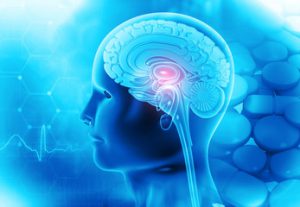
I think it is important for people to understand this as there may be a stereotype by some that this is sort of underground, Woodstock-y sort of thing. But there are research centers doing this in a very legitimate, semi controlled fashion. So I think it’s important that we clarify this for people.
DrPH: Yes. You alluded to the somewhat troubled history that we have, at least in the past 100 years or so, with psychedelics. I always like to point out that around the time that Albert Hofmann discovered LSD in 1943, until about the late 60s or early 70s, psychedelics, mostly LSD, were fairly mainstream in the medical world in psychiatry. They were not associated with any counter culture or Woodstock or Hippies.
So there was very little, if any, sensationalized media coverage around these substances. They were one of many that were seen as potentially therapeutic. Although I think that the enthusiasm was notable because those working with these substances not only had impressive data to go by but I think their own anecdotal observation suggested that they had some pretty powerful and potentially life altering substances on their hands. When I say life altering I mean for the better.
It really wasn’t until much later, after nearly 30 years of research with these substances that they became associated with this counterculture and a tumultuous time. And Timothy Leary who was, although a very brilliant person and an extraordinarily charismatic person, he was a Harvard professor, so he was no dummy.

He, nonetheless, was not quite much of a scientist near the end of his career there and I think mostly interested in media coverage and perhaps being something of a benevolent cult leader. From his perspective, he thought that he could change the world for the better. And we can talk about that in a bit.
But yes, I think given that rocky history, it’s always important to point out that not only did this line of work have a very legitimate origin, it wasn’t until later, during a very tumultuous time in our country’s history that they were vilified to some degree. Those who are doing the research now, myself included, are generally speaking, pretty boring scientists who are interested in these substances and the therapeutic potential they might have, but were approaching this from a very dispassionate and objective perspective. People often ask me, for instance, how did I become interested in this? I’m a clinical psychologist by training and my home discipline would be in smoking cessation.
I began graduate school in 1999. I was very interested in addictive behavior as a result of work I had done with a homeless shelter just prior to graduate school. I saw, first hand, how addiction can tear lives apart. My research mentor, who is a brilliant scientist in his own right, said to me, “If you want to understand addiction, smoking cessation and tobacco dependence are great models and you’ll finish graduate school because there are a fair number of smokers out there. In general they tend to function at a higher level, so it’s a bit easier to recruit them as research participants. But later if you want to focus on more difficult addictions, that’s certainly something you can do.” So that’s the path I took.
How I came to be interested in psychedelics really is serendipitous. I published my dissertation in a journal called Psychopharmacology in the same issue as Roland Griffiths’ now landmark 2006 study on psilocybin and healthy volunteers. At the time I received a complimentary copy of that issue in the mail and I opened it up thinking it would turn randomly to my study and instead turned to Roland’s and was just fascinated. I was born in 1976, so I’m a child of the 80s. My father was a lawyer for the Department of Justice, I grew up right outside of DC. So one of the refrains of my generation I guess is, “Just say no.” We remember the War on Drugs.
If the government had communicated that psychedelics, which would include LSD and psilocybin, are dangerous and addictive with no medical value, then I had every reason to take their word for it. I laugh as I say that now, but that was my assumption. Until the moment that I saw that research article by Roland Griffiths and that really changed my mind. Here I saw people who were administered this drug just one time reported it being among the most meaningful experiences of their lives, among the most spiritual experiences of their lives. In his later publications, he showed that this just one experience was having a lasting beneficial impact.
Of course I looked a little deeper at the research literature and found that it had been applied, it seemed, primarily to addictive disorders. That’s my area of interest and as anybody who works in this area would tell you, addictions are really difficult to treat. It can be discouraging because you can often offer the best treatment money can buy and still obtain pretty disappointing abstinence rates. At that point I thought, “Well look this could be a really promising treatment paradigm, certainly there was promising data previously and it’s really unfortunate that the treatment paradigm got caught up in a political movement. But the tide is turning here and I think we owe it to the people who are really struggling and suffering to investigate this in a really serious manner.” So if you could see me, you’d see that I don’t have dreadlocks, not that there’s anything wrong with that.
DrMR: No. You’re very, very clean cut, almost country club looking individual. So yes, we should probably just put that out there so people understand.
DrPH: Like I said, we’re a collection of fairly boring scientist.
Dispelling Stereotypes
DrMR: I think you made a number of great points. One is that you’re dispassionate. I think maybe perhaps part of the reason why people have a negative association between, again, sorry to use a stereotype…

But the hippie-looking individual and their questionable objectivity is because they may be so passionate about this research that they don’t do a good job of filtering out their own bias. I don’t think people are making that in a judgmental way, but perhaps you may be too into the psychedelics in order to see their shortcomings.
DrPH: You’re absolutely right. That’s why most of us, when we’re asked if we have a personal experience with these substances, will say, “Well we’re not going to answer that question, because there’s no way we could and please everybody.” If we say “yes”, that same accusation, that we lack objectivity, would be levied. If we say “No” then there are those who would say we have no business working with these substances at all. So there is no way to answer the question without creating another litany of issues. But also I think you’re right. There is that perception that those of us who work in this area may not be approaching it as objectively as possible.
I would say that as exciting as it would be to discover, and I use that term loosely, because humans have used these substances for many thousands of years and have understood their healing potential. But as exciting as it would be to discover or to be involved in the development of a new treatment paradigm that really works, it would also be really disappointing and disheartening to potentially label a treatment paradigm as therapeutic when it’s not. If we are not objective, we could unintentionally say, “Hey, we’ve discovered something that can really help people,” but in fact does not. That could also do quite a bit of harm.
DrMR: You’ve touched on some of the interesting research with smoking cessation. I know there’s a trial either running now or that just closed, looking at the application to anorexia.
There’s also research that you mentioned for healthy volunteers having what they label one of the most spiritually meaningful experiences of their lives. And I want to come back to the research in a moment and really outline that for people.

But just in case people are a little bit fuzzy on what exactly is a psychedelic, what’s a good way to define this?
Defining Psychedelics
DrPH: That’s a great question, because the term is sometimes used very loosely. I like to think of psychedelics, or more specifically classic psychedelics as those substances that have their primary mechanism of action on serotonin 2A receptors in the brain. They would include lysergic acid diethylamide or LSD, psilocybin, which is the active component in a genus of mushrooms that are sometimes called Magic Mushrooms, mescaline, which is the active component of the peyote cactus and other cacti including San Pedro, and dimethyltryptamine or DMT, which is the active component in the Amazonian admixture, ayahuasca.
So those would be the classic psychedelics. They have their primary mechanism of action at the serotonin 2A receptors. Others like MDMA or Ecstasy, Cannabis or marijuana, even ketamine are sometimes referred to as psychedelics. I guess in some ways I’m okay with that general term, but they are not classic psychedelics. So when we use that term, the classic psychedelics are those that I’m interested in.
DrMR: Now we outlined some of the research. I want to come back to those details in a moment. But first, I’d like to elaborate on how they can help. One of the theories I’ve heard put forth, and I’ll just attempt a very short summary here – essentially when people have developed an unhealthy way of thinking, and again I’m just painting with a very broad brush here, they facilitate certain pathways in the brain associated with that.
A psychedelic experience helps to rewire and establish electricity through the other connections that aren’t being used quite so often. That’s the rough sketch. Can you fill in for people how are these helping?
Because I think that may help people get more on board when they realize that, and this is another claim that’s been made, you could hit the same level of realization or therapeutic effect with one or a couple of guided sessions as you can with a year or years of therapy.

Perhaps it’s because you’re facilitating that re wiring. But that’s just what I’ve heard as an outsider looking in. So how can these help?
DrPH: I think that your explanation is not unreasonable. This is how I think of it, and remember, I’m a psychologist. So we could certainly bring in neuro biological levels of explanation and I do not think that they’re at odds at all with psychological levels of explanation. Because of course, any psychological or subjective experience has a neuro biological correlate. I’ll talk about those as well.
I think at its core, the psychedelic experience is one of profound awe. So that’s A-W-E. And that’s an emotion that we perhaps don’t understand well. In part because we use the term, “Awesome” to refer anything that’s cool or neat. But when I’m talking about awe I’m talking about an emotion that one experiences when they’re in the presence of something that’s so vast, that’s so large, so different, that we have to change the way we view reality. It changes the very nature of reality in our minds. Also in these experiences we tend to feel very small. In the extreme, we might feel that we don’t even exist. And feeling very small encourages us to think about ourselves less and think more about how we relate to others and how we’re interconnected.
For many people these experiences are marked by a sense of interconnectedness or oneness with others combined with a new way of seeing reality that we might call an epiphany or profound insight.
So there are a lot of analogies I might use, but one of my favorites is Ebenezer Scrooge on Christmas Eve. Ebenezer, as many of us probably know, was not a giving person, was not an especially caring person.

He was selfish, he was greedy, he devoted his life to the acquisition of wealth that he did not share. But one Christmas Eve he has this profound experience in which he realizes that his commitment to acquiring wealth has impacted negatively those around him. It has ruined a relationship that could’ve blossomed into a marriage, a family for him. It had alienated him from other family members, I think there was a nephew, and was impacting the health of his employee’s child.
It was at this moment that he realized, “I have to change. And I have to change now.” And he emerged the next day, a different person because he was now seeing things from a different perspective. Frequently this is what psychedelics, or classic psychedelics do. They can promote this profound awe experience in which people change the way they view reality and are often very introspective and change the way they view their own behavior and emerge very motivated to change for the better.
Perspective Shift
DrMR: That’s not just a theoretical. There’s one study I know of in terminally diagnosed cancer patients. They know they are going to die and they’re having a hard time coming to grips with that.

I don’t know what the agent used was, but they had a profound perspective shift after a guided psychedelics session. So we have measurable data documenting this.
DrPH: That’s right. I said in the past that there was a focus on addiction. There is also a focus on end of life distress. When you have one of these experiences that is characterized by profound awe, your attention is drawn to this thing, this stimulus is capturing your attention in such a way that you forget about your worries. So imagine you are concerned about your impending death. You might be ruminating about this. You might be very concerned about it. And suddenly you have an experience that’s so incredible, so amazing, so wondrous, that you return almost wondering what it was that you were worried about.
Seeing things from a different perspective. Before you might have been really concerned about what might lie ahead of you after you die or what might become of your family, you might suddenly see things from a new, more optimistic perspective. This newer, optimistic perspective might allow you to better handle the trials and tribulations of end of life and make the best out of that time you have left.
DrMR: What are your thoughts on how this can help the perspective shift specifically with people who have a perspective that’s not conducive to healing? As I ask this question I picture the small handful of patients I think every clinician sees and struggles with, who have a very negative outlook on everything. If every step of the clinical process isn’t an, “I’m feeling better. I’m feeling better,” then they are very quick not to come back or to complain or to gripe. They just seem to find something they don’t like in everything. In a policy, in a form, in a… you name it, they’re finding something that makes them unhappy.
Those oftentimes tend to be the hardest cases because the way they view the world is just colored with negativity. Do you feel that there is applicability for this type of person in shifting their perception into a healthier way?

DrPH: Absolutely. Another level of explanation would be, what’s happening in the brain? So we know that there are a collection of brain structures that communicate with one another at rest. We refer to these brain structures as the default mode network. For people who tend to ruminate quite a bit, who are anxious or depressed, that network tends to be hyper connective and hyperactive. So you might think of somebody who’s pessimistic and ruminative as this system just working on overdrive. It’s communicating too frequently and too much.
There is some really good research out of the UK indicating that the use of a classic psychedelic can regulate or normalize this system. One analogy that’s popular is that you’re essentially turning off your computer and rebooting it. It might’ve been acting a little wonky before you turned it off, upon rebooting it it seems to be running much cleaner. Many people who might be ruminative and pessimistic, as you describe, after an experience like this, might find that they return not so negative, not stuck in a rut, that they’re suddenly willing to explore new perspectives.
This could be in part due to some degree of neuroplasticity as you’ve described. Perhaps we are actually making physical changes in the brain after these sort of experiences. Before someone would not have considered taking a more optimistic outlook, now they are.
DrMR: I believe there have been some brain imaging studies done. But again, this is really at the end of reaches of my level of knowledge. What do we know there in terms of have there been MRIs pre, post or anything where we can actually look at what’s happening inside the brain?
DrPH: Most of what we know concerns this default mode network and normalization of that default mode network. I think there’s much more to be done. The ultimate question is, is there evidence of plasticity? Is there evidence that we are in fact facilitating growth of neurons and neuronal connections in the brain? I’m not aware of any data that support that idea. And undoubtedly it would be very expensive to do so.
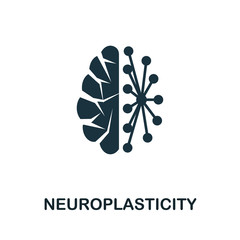
DrMR: Is it more so an issue that that research has not been done yet or that hypothesis has been disproven.
DrPH: I think the research on this topic has not been done.
DrPH: Most of the research surrounds this default mode network and I think there’s some solid evidence that suggest we are indeed normalizing that network.
DrMR: Now is that because it is easier to study that network than neuroplasticity is?
DrPH: Absolutely, yes.
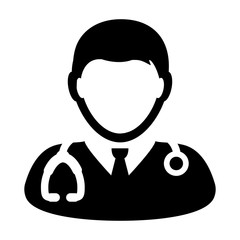
DrMR: Okay. How do those studies look? I know we have some clinicians here in the audience, I’m sure they’re curious if there’s a short elaboration on how you study that in an individual.
DrPH: Well here I’d be stepping I think far outside my comfort zone. But from the experts I’ve talked to, I think the short answer, it would require a PET scanner and PET scans are expensive.
DrMR: So that’s the limitation, it’s just it’s mainly a cost driver?
DrPH: I believe that’s part of it. I think there’s some great research taking place right now. But this line of work has not yet been funded by NIH. I understand the hesitance that a program officer would have in funding this line of work. But as helpful as private donors have been, we’re not really going to see the gains and research productivity until we see some sort of public funding. The limiting factor right now is the available funding.
Research & Additional Indications for Use
I should also mention there’s some great work too to indicate that classic psychedelics can address the chronic inflammation that is also common among folks who are suffering from mental health conditions. And this in fact anti inflammatory effect could apply elsewhere, which is obviously relevant to what you do. So there could be a potent anti inflammatory effect for psychedelics that could be applied for conditions that don’t concern mental processes necessarily.
So it could be used as even a topical, potentially, for conditions that are marked by inflammation and the treatment would involve perhaps the administration of one of these substances but without crossing the blood-brain barrier so folks could be administered the classic psychedelics without any psychoactive effect to address a medical issue. That’s also something that’s on the horizon, but I think that’s a potential.
DrMR: Interesting. I had no idea about the anti inflammatory potential.
DrPH: It’s Charles Nichols out of LSU in New Orleans has done a lot of the work in this area. It’s emerging and there’s really little I can say about it as a psychologist. We can talk about psychological mechanism of action all day but some of these more neurological explanations are a bit outside of my comfort zone. So I don’t want to put my foot in my mouth.
Sponsored Resources
Hi, everyone. Let’s talk about probiotics, which helped to make this podcast possible.
Functional Medicine Formulations contains a line of probiotics that I personally developed, and I’m super excited to be able to offer you the same probiotics that I’ve been using in the clinic for years and are a byproduct of an extensive review of the literature plus my own clinical experience.
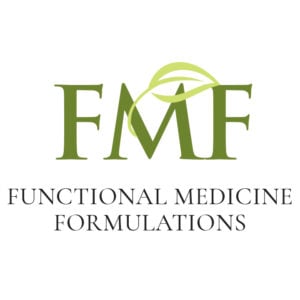
In this line, you will find my favorite three probiotics in all three of the main categories that work synergistically to help you fight dysbiosis, like SIBO, candida yeast, and H. pylori, help to eradicate parasites, help to reduce leaky gut and repair the gut barrier, and can improve gas, bloating, diarrhea, constipation, and may even improve mood, skin, sleep, and thyroid function because of the far-reaching impact of the gut. You can learn more about these at drruscio.com/probiotics.
One of the ways we can also come at this, being a bit pragmatic, maybe it’s difficult to fully assess the mechanism for cost or access reasons obviously studying the brain is not the easiest organ to poke and prod. So we can look at outcome data. I’m a big fan of looking at outcome data. I’d rather look at the outcomes first and then figure out the mechanism later if I had to pick one. We’ve touched on a few things. Smoking cessation, anorexia, spiritually meaningful experiences, perspective shifts in terminal cancer patients. There’s also the anti inflammatory link that you described. And then I’ve also heard of research using MDMA in post traumatic stress disorder victims and just cathartic changes with them. So that right there is fairly compelling in my mind. Are there any other keynote studies that you feel are worth a mention?
DrPH: Okay. So let’s see. So some of Matt Johnson’s work out of Johns Hopkins on smoking cessation I think is very compelling. Michael Bogenschutz out of NYU and formerly University of New Mexico, has done some great work with alcohol dependence and continues to do so. Obviously the folks at NYU and Hopkins have published their work on end of life anxiety among individuals with advanced stage cancer. The anorexia work I believe is just now beginning, so we don’t have any data on that yet. I’m currently conducting a trial on cocaine dependence but we have not finished the study so we don’t have data there yet either.
As far as MDMA’s concerned, now MDMA is part of that larger psychedelic umbrella though it’s not a classic psychedelic. Its mechanism of action is different, the subjective effects are different. And the proposed mechanism of action is one where someone with PTSD might really struggle to discuss, to describe the experiences they’ve had. That in fact is part of the process that only serves to exacerbate that condition. So the idea is, if you can get someone talking about their experience, you’re exposing them, in a sense, to that experience. With greater exposure leads to desensitization in the same way we might expose someone to snakes who has a phobia to snakes. One of the things we can do is expose them to those snakes such that those snakes no longer illicit that response.
And I think the idea with MDMA is that for individuals who are having a really, really hard time discussing their traumatic experience and are therefore not experiencing an improvement of their symptoms, the MDMA puts them in a place where they feel more comfortable opening up and talking about that experience without such a strong emotional reaction. That can begin to open up these, or break down these defenses or make them more open to describing their experience and with time lead to an improvement of symptoms.
So I think that’s really exciting. And the work that Matt and others done with MDMA for PTSD is really exciting. And I’m sure that we’ll see an FDA indication for that within five or 10 years. Also out of Charlie Grove’s lab at UCLA we saw a study led by Alicia Danforth on the use of MDMA for social anxiety among individuals with Autism. I read over her study a while back, Alicia had some really promising finds. So it looks like MDMA can be also helpful in alleviating social anxiety.
I think what we’re going to see moving forward is some continued positive findings for end of life anxiety, for treatment resistant depression and addiction, for the classic psychedelics, psilocybin in particular. And more promising findings for MDMA for PTSD and potentially for some conditions that are characterized by social anxiety.
DrMR: Now one of the things that people may grapple with is a thought, “Okay well this sounds therapeutically appealing but someone’s got to trip in order to do this.” And they’re reverting right to the Woodstock picture in their head. From what I’ve gathered, this isn’t quite as, “Trippy,” as it may seem. While a patient may see things or have an emotional experiences, it seems, when used in a safe, therapeutic setting, preferably with a therapist present, that the experience would be different. So it’s not about being at a concert laying on the grass, looking up at the stars and just being out of your mind. But rather, the analogy I’ve heard is, you’re trying to really go inward and discover things and have this moving experience. Can you tell people a little bit more, in case they’re still seeing in their head when they picture what it’s like to use psilocybin or AKA mushrooms. Give me maybe a more therapeutic picture that they can hold in their head.
DrPH: Let’s say you were one of my participants for my study on cocaine dependence. After a medical exam where we’d ensure you were in good general health. One thing that’s important to mention is psilocybin will increase your blood pressure by about 20 points and increase your heart rate. So if somebody had a serious, undetected, underlying heart condition, this could be a danger to them in the same way that exercise could be a danger to them and the same way that a number of activities could be a danger to someone with very high blood pressure or a very serious arrhythmia or any kind of undiagnosed, undetected heart condition.
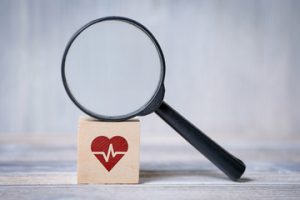
Provided they are generally healthy and there are no serious heart issues, we move forward. We would meet with the subject for four sessions, each lasting about two hours.
During that time, we would spend about half the time getting to know you, establishing therapeutic alliance and rapport, knowing that in four weeks time, we could be administering a substance, this is a placebo-control trail, that’s why I said, “Could be”, administering a substance that could in turn produce for you one of the most meaningful, profound experiences of your life.
It can also be very frightening. So we haven’t talked about that. These experiences can also be marked by intense fear or paranoia. Therefore if used in the wrong context, can be dangerous. We want our participants to feel very comfortable with us, to know us well, to establish that bond with us. They know that we have their best interest in mind. So that if they do experience a struggle, when we do administer the medication, that they’ll feel that they can turn to us for emotional support.
After these four preparatory sessions, we administer the drug. In our case we administer it in a CRU. As a clinical research unit, meaning we have a team of nurses on hand, a med team, a crash cart on call, in the event that any kind of catastrophic emergency took place, we would be prepared. Nothing has and we don’t expect that anything would. We’re going out of our way to protect our participants. We have a physician on call in the case there’s let’s say a hypertensive crisis that isn’t resolving on its own.
We administer the drug in a very comfortable and calming… sometimes referred to as a living room like environment. But this is a hospital research ward. It’s a hospital room, not a place people typically feel comfortable. Instead, they tend to elicit anxiety.

So we put a rug on the floor, we put artwork on the walls. We try to use a different lighting rather than using the fluorescent lights. Of course the room contains no sharp or breakable objects. Our participants are lying down on a bed and they’re wearing eye shades and listening to a playlist, that’s the same for all participants, on headphones.
We really encourage our participants to withdraw, to turn within, to be introspective. A big part of the preparation also involves working with participants in this I think critical notion that to have the most therapeutic experience one has to be open to everything that comes their way and surrender to the experience in the sense that they don’t try to control it. Turning back to Timothy Leary, these are some of his most important insights. And he documents these in the book entitled The Psychedelic Experience, which was based on the Tibetan Book of the Dead, a really brilliant idea. He wrote this book with Richard Alpert, now Baba Ram Dass and a graduate student who recently passed away, and whose name, please forgive me, is eluding me at the moment. One thing he said was, it’s really important that you completely surrender to this experience, that you do not try to fight it. To paraphrase him, at one point he says, “If all else fails, just turn off your mind, relax and float downstream.” And that might sound familiar to you because those are also lyrics from a Beatles’ song, Tomorrow Never Knows.
So this is easier said than done. And the graduate student was Ralph Metzner. Sorry for all of you who are fans of Ralph’s work. He’s a pioneer, without a doubt. We really have to impart in our participants how important it is that they be at ease with where they are, that they trust in the process, that they let go of any attempts to control the experience and they really surrender to whatever comes their way. And that’s easier said than done, like I said.
So by the time we administer the drug, we’ve worked very hard to get them to the point where they feel safe and comfortable and that they’re really to completely to surrender to this experience. We work hard to make sure that they’re in an environment where we maximize their safety.

DrMR: Which is very different than being at a party where people are drinking and on a cocktail of different drugs. So clearly we can see it’s a very different intent from the very onset, based on the setting
DrPH: They’re not at a music show, they’ve really put a lot of effort and thought into their experience and they’re in a space that is designed to maximize safety and therapeutic effectiveness. They’re in the presence of myself and a co- therapist, who are there just for them, to help them in the event that they encounter any difficulty. And that of course is much different than many forms of recreational use.
Contraindications to Use
DrMR: You mentioned one contraindication which is preexisting cardiovascular disease. I’ve heard that a history of psychosis or schizophrenia is also a contraindication. Is there any more granularity there in terms of fairly overt contraindications?
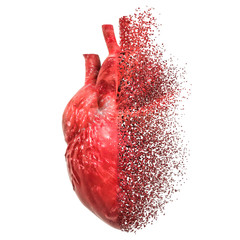
DrPH: That’s a great, great question. You’ve done your homework or you’re just an insightful person. We feel very comfortable in saying that if you have a serious cardiovascular disease then the treatment is not right for you. Anything that’s going to elevate blood pressure and heart rate, even moderately in this case, is not ideal for those with serious cardiovascular illness. But the question about psychosis is an interesting one. I think the older literature certainly suggests that for those with a predisposition, a genetic predisposition to develop psychosis that a psychedelic can precipitate a psychotic break.
Out of an abundance of caution, we exclude individuals with a family or personal history of psychosis from participation. We certainly wouldn’t want to precipitate a psychotic break. But at the same time I wouldn’t want to say now that this treatment paradigm may never be applicable to those who have a psychotic disorder. So for instance schizophrenia is associated with depression and it could be, with the right individuals, that this treatment paradigm could also be useful to those individuals with schizophrenia who are also dealing with depression.
I don’t know that this is a hard and fast contraindication. For now we exclude those individuals, but it could be something that with thought would be applicable in the future.
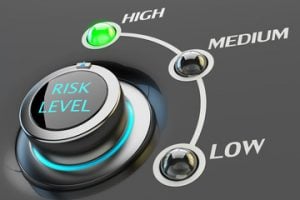
DrMR: I think that’s a fair point, that they could be a subpopulation that’s at highest risk for a negative reaction or adverse event.
However, with time and education we may learn more about the subtle tells that they will have an adverse event compared to not and whether there are there additional modifications that could be made to the dose or the setting or the intention or what have you, to really help them navigate that more successfully.
DrPH: Exactly. There are subtypes of psychosis or schizophrenia and perhaps certain subtypes would respond well. There are positive and negative symptoms of schizophrenia, perhaps those who exhibit more negative than positive symptoms would be good candidates for this treatment. Or perhaps those who are well controlled on antipsychotic medications. I just wouldn’t want to close the door on any population potentially benefiting from this. But for now, yes, we do exclude those with a history of psychosis.
DrMR: So for now, proceed with caution until we know a little bit better how to yield this tool.
DrPH: Absolutely. And we have to consider that the political lens is heightened here. In these first few studies, we’re being very cautious. So I think for good reason. If we initiated this line of research again after a long dormancy and with this history, as I mentioned, if we had an adverse event early on it could potentially spell doom for what we’re trying to do. There could be a time where we are willing to address riskier research questions, but right now we’re fairly risk averse, and I think it makes sense that we are.
Caution is Warranted
DrMR: Absolutely agree. Now maybe the hardest question of the interview here. How could someone get started? I know that there are obviously research centers, I’m assuming there’s a decent amount of red tape.

There’s also an underground which there’s likely some very good, talented therapists there, but obviously other practices one may want to be guarded against. I know you probably have to be careful with what you say, but what’s the best advice you can give here?
DrPH: Well, believe it or not, I know nothing about the underground beyond Michael Polland. So I’m aware that there is an underground. Now Michael lives in Berkeley or the Bay area. And I would imagine that that underground is more active than it is in Alabama.
DrMR: Yeah, a safe bet I’d assume.
DrPH: But I’m not aware of any such underground here. I don’t have any contact with that underground and I’m not just saying that because I’m on a podcast that’s being distributed everywhere. What I typically say is, “Look, if our hypotheses are supported, if this treatment paradigm continues to show that it is both safe and effective, it could be that within 10 years we will have an FDA indication and that would mean, in other words, those who think this might be the kind of treatment for them could go to a hospital or a clinic, could see a physician like yourself and receive this treatment in a safe, supportive environment with medical supervision.
I feel really, really uncomfortable suggesting that anybody look into receiving this treatment or, I should say, look into ingesting these substances without that careful oversight. Even though they are generally quite safe. Certainly safer than opioids and major stimulants and even alcohol.
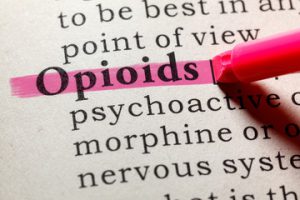
I would hate to think that even one person was harmed because they’d heard about this line of work and thought, “Hey this could change my life.” I think the media coverage has been very positive. I could even argue that sometimes it’s been overly positive. I don’t think we have a cure all here. I think this is a treatment that appears to have potential to help a lot of people but it won’t help everybody. You know that yourself. There are some folks who may just not respond to certain treatments.
I think we need to be measured and really wait to see what story the data tell before we make any kind of recommendations and we obviously can’t. Psilocybin, LSD, mescaline, these are all Schedule I Controlled Substances. So they’re very highly illegal. If somebody makes the decisions to ingest one of these substances on their own then they have to consider that they’re risking criminal charges and that there’s also a risk to their safety. Obviously there are a number of things that are dangerous, including driving a car, something that we almost all do everyday. I’m not really wild about telling people what they should or should not do with themselves, but at least I can say it’s not something that I recommend. Now there are elder traditions as well. By that I mean people can legally fly to some parts of South America and participate in ayahuasca ceremonies. One has to exercise extreme caution in doing so, if someone is on a serotonin medication they should discuss that with their psychiatrist because there is a natural occurring monoamine oxidase inhibitor in ayahuasca and one could experience serotonin toxicity if they’re not careful about their medications before participating in one of these ceremonies.
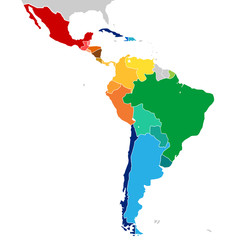
Of course there are unscrupulous characters who are taking advantage of the demand in South America. So one has to do their research if the free market is dictating who’s administering this drug. They should be sure that they’re participating in a very reputable ceremony. I think in general all I can say is, boy, be really, really careful, because these substances are not without risks.
The media reports have been perhaps too positive. Things can definitely go wrong and it might just be better to make use of the available legal treatments that we know work before diving into this new realm about which we still have more questions than answers.
DrMR: Well I really appreciate your point regarding the media favorable coverage. This is actually something that also permeates medical research, where we know there tends to be this selection bias where a new therapy tends to only have positive studies accepted by a journal for publication because journals want to publish new and novel and interesting findings. It’s less exciting to say, “Here’s a study on a new therapy and the new therapy didn’t work.” This is where I’m a big fan of looking at meta-analysis when available, because sometimes you’ll see that the first few studies accepted are favorable ones, while there may be contradictory findings out there, they may not make their way into publications right out of the gate.
I think the same thing happens in the media. And one of the concerns that I’ve had with the rise of popularity with ayahuasca is ….. from what I understand, ayahuasca is a very intense psychedelic. My concern there, although open on the one hand, is that people may be going from never having taken a run, to running a marathon. I do have a concern with people going to those great lengths, which is why something like psilocybin, where it seems that, from what I’ve heard in some of Polland’s work and just through some of my own research, people can slowly, incrementally increase their dose session after session. With what I’ve heard about the ayahuasca ceremonies, you just jump all in and a shaman gives you a drink of ayahuasca and you’re blasted full into the marathon.
View Dr. Ruscio’s Additional Resources
So for people who are going to do this on their own, be cautious with the excitement on the internet. Not to feel like you have to go to extreme lengths. Again be very careful, do your research and when in doubt, trust your gut and then slow and steady seems to be a generally safer approach than just going right into a very intense ceremony.

Even if working with the shaman. I do think there is something there we should acknowledge, which is the shamans have been using these things for a very long time and I’m assuming that art/science is somewhat well developed. But we also want to be a little bit bridal to your point, which is a fantastic one, some of these shamans might be thrust into a situation where they’re not ready to handle. “What do I do with this guy from the West who drinks beer all the time, is on an antidepressant, is on a blood pressure lowering medication?” They’re probably not used to working with that type of person. So we want to be careful with how much we take from the shaman’s experience because they may not be used to working with the same type of animal that someone from the West may be.
DrPH: Yeah. I can imagine, let’s say, somebody who’s really struggling with drinking and lives in Manhattan hopping on a plane and ending up in the wilds of the Amazon and before they know it, they’re ingesting this extraordinarily intense psychedelic brew that causes vomiting and sometimes diarrhea, while having this intense, subjective experience in a jungle surrounded by people he has never met before and with a shaman who may not even speak English or even Spanish for that matter.
It seems to me like there’s a lot that can go wrong in that circumstance. I think it’s good to acknowledge that, and some of my own research has indicated this, people do use these drugs. It would probably be an incomplete response for me to say, “Hey, just don’t do it.” Because I know people are using them.
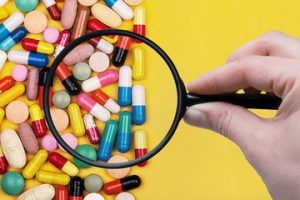
So I would say, “I don’t recommend it.” I think it’s best that we go out of our way to make things safe. I don’t want anyone to be harmed, but if people are going to do it and they’re not going to heed our caution I’d say, “Do your homework. Be very, very careful. Have the support of friends and don’t do this in an environment that’s potentially dangerous. A roof-top around sharp edges and breakable things. Being at a large public gathering is probably not the best idea. Don’t drive. Don’t operate other large vehicles.” And, as you said, “Start small and work your way up.”
But there’s only so much I can really say about that. There are a lot of otherwise psychonaut experts out there in the real world who are probably better sources of information than I am.
DrMR: Well I’ll just bring us towards a close with this funny story/cautionary note. So as I’ve been looking into this, I’ve asked various friends of mine who work in the space of psychotherapy and whatever related fields subset underneath that, and I have one friend who works in the space and he also decided to do some psilocybin experimentation. He ended up using mushrooms while in San Francisco, or Golden Gate State Park and didn’t really appreciate the time latency to how long they can take to set in. He ended up being in the woods, deep in a hike, not really realizing where they were, a little bit lost, around the time that the sun is setting, and that is when the mushrooms kicked in. Right as they were trying to get out of the park more quickly, they took a shortcut off the map and they ended up in this deep, thick shrubbery, so thick they had to crawl in these little animal holes in the shrubbery. Only to eventually end up confronted with a swamp. Then it was nightfall and they ended up crawling through the shrubbery almost off the side of a cliff, because they could barely see in front of them. Later they saw a mountain lion and thankfully got out alive. But I would say, “Luckily”. So that was a perfect example of all the things that you should not do.
Be in an environment that you don’t know, without adequate control, without an exit plan. That very easily could’ve ended with someone dying. I think very high levels of caution should be exercised here, no matter how you do it. So just for people out there, just be careful.
DrPH: There are tales of ayahuasca tourists in South America who’ve lost their lives during some of these ceremonies. The details are a bit hazy, as you might imagine. Now that Denver and Oakland have both decriminalized some of these substances.

In the case of Denver, Psilocybe mushrooms, in the case of Oakland, not only Psilocybe mushrooms, but ayahuasca and mescaline as well. I think there probably will be an increase in mishaps. I think most will just be mishaps. In most cases we won’t hear of people being very seriously harmed, and of course, the media’s reporting, they’ll probably look over the fact that many thousands of people are killed every day as a result of alcohol and tobacco. So let’s keep our perspective.
DrMR: I just want to say that’s a great countervailing point, absolutely.
DrPH: Keep our perspective. But still, I would hate to think that anything I’ve said could lead to someone being harmed. I therefore say, don’t do it but if you do, exercise extreme caution because a lot can go wrong.
DrMR: I think that’s reasonable. Just like we don’t drink and drive. There are certain parameters of safety you want to put in place before doing any kind of drug.
Episode Wrap Up
DrMR: Okay. Is there any website of twitter handle or anywhere you want to point people if they wanted to read more about your work?
DrPH: Well I guess at the moment, the best recommendation I have would be my own twitter page. I don’t do much. I probably should do more. Everyone tells me to do more. @pshendricks is my Twitter account. So if I have more followers perhaps I’ll post more things.
DrMR: Great. And any closing thoughts you want to leave people with?
DrPH: I’d say, stay tuned. The future is exciting. I’m really excited to see what these studies reveal. I would also say that as public opinion shifts and as we realize now that the scientists who are doing this research are primarily really interested in helping others and not interested in ushering in some cultural revolution, perhaps there’ll be better support for public funding, namely from NIH. With that I think we’ll see the growth of this research we’ll see it into applied potentially to more conditions and better understand the mechanisms of action. So I would say, as a closing note, if the listeners are interested in this work, they’d like to see more of it … challenge your friends, who might think that’s it’s a cause of the Hippies or the counterculture and say it’s a very legitimate line of work and the people are doing it are really trying to make the world a better place. If we can change those minds then we might just see more funding and more work among these lines.
DrMR: I think that’s a great point. To help our audience to that end point, I will do my best to aggregate references for all those different studies that we mentioned earlier. So you should have a nice brief of the science that’s been published as one way of helping to sway opinion of those who might be skeptical.
DrPH: Perfect.
DrMR: Well Peter, thank you, it’s an exciting field and I’m sure you’re going to work every day curious and excited. So thank you for doing what you’re doing. And just really appreciate you taking the time.
Dr. Michael Ruscio is a DC, natural health provider, researcher, and clinician. He serves as an Adjunct Professor at the University of Bridgeport and has published numerous papers in scientific journals as well as the book Healthy Gut, Healthy You. He also founded the Ruscio Institute of Functional Health, where he helps patients with a wide range of GI conditions and serves as the Head of Research.➕ Links & References
- Smoking cessation
- Psilocybin and healthy volunteers – Landmark study
- Psilocybin psychotherapy for anorexia
- Terminal cancer patients: improved outlook
- MDMA to treat PTSD
- Anti-inflammatory
- Alcohol dependence
- Social anxiety in Autism
- Twitter: @pshendricks
- Functional Medicine Formulations: Probiotics
- Dr. Ruscio Resources



Discussion
I care about answering your questions and sharing my knowledge with you. Leave a comment or connect with me on social media asking any health question you may have and I just might incorporate it into our next listener questions podcast episode just for you!